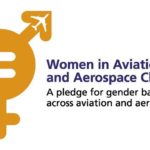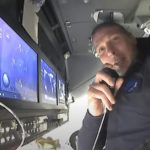KBR – the merged companies of MW Kellogg with Brown and Root – celebrating its centenary last year.
The company credits its hundred year milestone to an approach which embraces innovation and an eye to the future. KBR has experience in petrochemical engineering, renewable energy and space mission support. Its engineers, analysts, technicians, test pilots and operators have been part of air and missile operations for more than 30 years.
Sustainability is “core part of the business”
Global vice president of consulting for KBR Ben Sawford said the company would be moving into the next 100 years by putting the focus on sustainability.
He explained: “So a number of years ago, we we adopted a zero harm policy. And that was really specifically focused on on health and safety. Moreover, more recently, it’s become very much a core part of our business to be sustainable. Things like the United Nations Development Goals are aspects that we adopt. They’re simply good business, you cannot really be in business without having a sustainability agenda, not in this day and age.”
He added KBR’s technology business was built around sustainability with aspects such as low carbon or ammonia which uses sunlight and wind electrons to create cheap electricity as a zero carbon transportation fuel.
KBR has been involved in large scale projects such as Camp Bastion in Afghanistan covering six and a half thousand acres of land in a landlocked country, housing 28,000 personnel and upwards of 50 aircraft within the area being defended against what Sawford described as a “reasonably determined enemy.”
“This is significant logistics,” he explained, “And with that comes sustainable development principles, renewable energy, photovoltaic panels on roofing, all aspects really to try and green the agenda.”
Sustainability is not just about reducing carbon emissions
But Sawford added sustainability was not just a case of reducing carbon emissions, training the next generation was also key to upholding its principles.
“We fly military training aircraft for the Ministry of Defence, and they are used to instruct, effectively, the next generation of pilots, I believe we’ve got about 38, maybe 14 modern aircraft flying across the UK, so this is training the next generation. So again, from a sustainability standpoint, and looking at the social agenda and bringing the next generation through, not only is it greening, but it’s actually a social training agenda. So for us, again, it’s in our DNA.”
Sawford said that the issue of sustainability was growing in importance not only within KBR, but within the entire defence world.
He said: “I look to Australia and look at the Naval Training College that colleges we’re involved with and that is entirely looking at the next generation of naval operator for a country that didn’t have that infrastructure until this particular programme. It’s really looking at how do you educate the next generation, so that you can sail and operate the next generation of naval equipment, which is also being built in that country. You cannot do one without the other so that’s huge social agenda and also an economic benefit to the country as a whole.”
COVID-19: pushing sustainability up the agenda
Sawford said the Ministry of Defence was now embracing three business pillars – environment, social and the economic. He added that the COVID-19 pandemic was pushing sustainability further up the business agenda: “I believe that it has been a success, and actually post COVID and into COVID, we’re definitely seeing a lot more interest and passion around sustainability in the private sector in particular, but definitely from a governmental perspective.
KBR is sponsoring and hosting the Defence Sustainability Conference, designed to showcase the extensive work currently underway across the UK MoD and Industry, to optimise operational advantage and support the target of Net Zero 50. The event will be taking place early in 2021.

